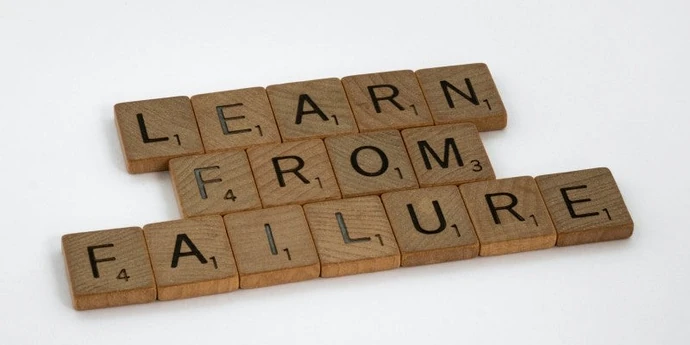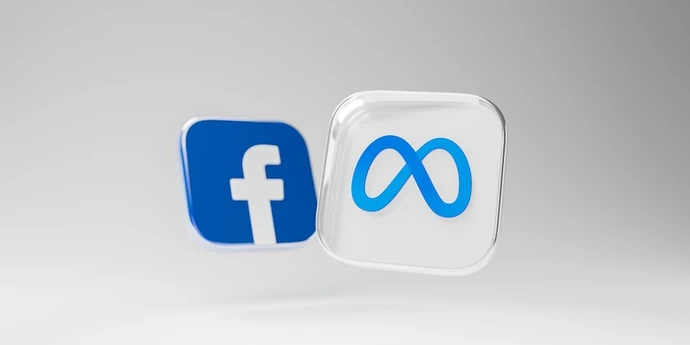Meta interviews can be intimidating, no matter what role you’re after.
If you’ve got one coming up, you’ll want to know what the experience is like, and what to expect.
To help you feel more familiar with the process, we talked to 7 real Meta candidates about their interview experiences and strategies for success. We’ve also gathered some insights from candidate reports online to give you a fuller picture of the entire process.
- Typical Meta interview experience
- Meta interview process timelines
- “My Meta interview experience” from 7 successful candidates
- Preparation strategy from Meta success stories
Let’s get started!
Click here to book a 1-on-1 session with an ex-Meta interviewer
1. Typical Meta interview experience↑
Before we get into specific Meta success stories, let’s look at what a typical Meta interview experience is like based on candidate reports online.
1.1 Meta interview experience: positive / negative
Based on Glassdoor data, 57% of candidates rate their Meta interview as a positive experience, while 19% rate it negatively. In terms of difficulty, the overall Meta interview process was rated a 3.2 out of 5 (with 5 being the most difficult).
Here’s how Meta compares with other FAANG companies:

Fifty-seven percent of candidates consider their Meta interviews as a positive experience, slightly worse than Amazon, Apple, and Google interviews but several points better than Netflix. In terms of interview difficulty, it ranks second to Google.
Now, let’s take a look at what some candidates are saying about their Meta interview experiences online.
Positive Meta interview experience
-
Structured interview process
“The interview process was well-structured and professional, consisting of multiple rounds that assessed technical proficiency, problem-solving skills, and system design knowledge. The interviewers were knowledgeable, asked insightful questions, and focused on real-world applications of engineering principles.” Meta software engineer candidate, Glassdoor
“Very thorough and meticulous process, probably one of best interview experiences. They definitely go out of their way to make sure that you can do your very best and be as prepared as possible.” Meta software engineer candidate, Glassdoor
“Nice and structured interview process... The interviewer was friendly and helpful in guiding the conversation in the right direction. Overall, it was a great experience.” Meta product manager candidate, Glassdoor
“I found the interview process structured and very well-organized. The interviewers were among the most professional I have ever seen in the industry.” Meta software engineer candidate, Leetcode
-
Challenging but appropriate questions
“Great, smooth and appropriate questions for the role. Didn't make it in the end but really enjoyed the process from start to finish.” Meta product manager candidate, Glassdoor
“I was pleasantly surprised by the depth and relevance of the questions. They were challenging yet thought-provoking, and I found myself learning and reflecting on my knowledge as I answered.” Meta machine learning engineer candidate, Glassdoor
“The questions were fair and well-structured, making them reasonable to answer. Overall, it was a positive and balanced interview experience.” Meta machine learning scientist candidate, Glassdoor
“The interviews are difficult, but they really want you to be able to present your best self and give you a lot of time and materials to prepare.” Meta IC4 candidate, Reddit
-
Helpful and professional recruiters and interviewers
“The recruiter was friendly and clear about the process.” Meta software engineer candidate, Glassdoor
“The interviewer was friendly and nudged in the right direction every time I was not able to figure something out.” Meta data engineer candidate, Glassdoor
“The recruiters are super helpful. The interviewers also made the process very interesting and engaging.” Meta product manager candidate, Glassdoor
Negative Meta interview experience
-
Long and tedious process
“Took a super long time from initial contact to technical screen, phone screen, and rest of interviews. Still waiting to hear back; no communication at all. Leaves a bad taste in my mouth.” Meta machine learning engineer candidate, Glassdoor
“Tedious. Rather long. Felt like I was being ignored while a robot asked me questions.” Meta product manager candidate, Glassdoor
-
Ghosting
“After the interview, there was no timeline given to me and my recruiter was generally being unresponsive about what was going on. She said she would get a decision from the HC by a certain date, and did not actually deliver the decision until 6 days after that. She gave me zero feedback.” Meta machine learning engineer candidate, Leetcode
“Unfortunately, nobody showed up for my online interview. I also did not get an explanation and barely got an apology.” Meta software engineer candidate, Glassdoor
-
Unhelpful and unprofessional recruiters and interviewers
“The interviewers were not very helpful when stuck on a question. Seemed a bit judgmental as well. Overall not the best experience I have had interviewing for a software engineering role.” Meta software engineer candidate, Glassdoor
“The interviewer in one of the coding rounds was extremely rude and unprofessional, which ruined the experience.” Meta software engineer candidate, Glassdoor
“The interviewer for execution seemed very disengaged and left so many questions open-ended that it was very hard to give a good answer.” Meta product manager candidate, Glassdoor
“Had an introductory call with a recruiter which was pretty straightforward and was planning to schedule interviews but the next thing I know, out of nowhere I'm told they won't be proceeding with my candidacy.” Meta software engineer candidate, Glassdoor
1.2 Are Meta interviews harder than Google interviews?
According to Glassdoor interview reviews, candidates rate Google interviews as harder than Meta interviews. Google scores a 3.4 out of 5 in difficulty, while Meta scores 3.2.
According to Mary Zhang (Google, ex-Meta SWE), Meta interviews are harder to get into. But, they’re easier to clear compared to Google interviews. This could be because Google has a reputation for being an engineering-led company and typically asks hard questions you won’t find online. Meta, on the other hand, puts more emphasis on soft skills.
1.3 What is the pass rate for Meta interviews?
Based on online forum discussions, the estimated pass rate at each stage of the Meta application process is as follows:
- Recruiter screen: ~75%
- Initial tech screen: ~25%
- Full interview loop: ~5% or less
According to this Blind discussion, only 5% of Meta interview candidates pass all their interviews on their first time. Most will mess up some rounds and get called up for a follow-up.
One long-time interviewer in the same discussion said the pass rate is in the single-digit percentage. They added that they’ve not been in a loop that has resulted in a hire for years.
Meta is a prestigious company, so it’s extremely competitive. About ~90% of candidates don’t make it past the resume stage.
2. Meta interview process timelines↑
Meta interview process timelines differ based on the role and location. Here’s a quick summary of the estimated timelines for the top roles based on Glassdoor data:
- Software engineer: 2 weeks to 2 months
- Product manager: 3 weeks to 3 months
- Engineering manager: 2 weeks to 3 months
- Technical program manager: 2 weeks to 3 months
2.1 Meta interview process: 7 steps to expect
Each role will have a slightly different structure, based on the different skills to be evaluated during the initial screens and full onsite loop interviews.
In general, here are the steps you can expect from a typical Meta interview, from application to offer:
Resume screen
After you’ve submitted your application through the Meta jobs portal, or been contacted directly via email or LinkedIn, recruiters will evaluate your resume to see if your experience aligns with the open position.
To increase your chances of getting a Meta interview, you first need to polish your resume. Check out our guide on how to write a tech resume to get started.
If you need expert input, consider booking one of our ex-Meta recruiters to help you fine-tune your resume for the company.
At any point during your application to Meta, you can sign up for a Career Profile on Metacareers. This portal is the company’s one-stop shop for all things related to your application.
Recruiter call
If your resume passes through the resume screen, a Meta recruiter will reach out to you to schedule a call. This generally lasts 20–30 minutes.
In most cases, this call is not technical, although candidates for some highly technical roles may receive a few low-level screening questions that test general technical knowledge.
Otherwise, you should expect questions like, “Tell me about yourself”, “Why Meta?”, and “Walk me through your resume”. Be prepared to go over your previous experience and explain your motivation for applying to the company.
The recruiter will also discuss with you how the overall interview process will work, and send helpful interview prep materials. If you have any specific questions, now is the time to ask.
Initial screen (1-2 sessions)
Depending on the role, you will have one or two screening interviews with a hiring manager and/or future peers.
At this point, interviewers will dig deeper into your past experience with behavioral and hypothetical questions that test specific skills related to the role.
Technical roles will also include coding on a shared code editor, word document, or whiteboard if it’s in person. In most cases, it will not include syntax highlight or auto-completion, so prepare for that kind of coding environment in advance.
Ultimately, if you’re prepared for the types of in-depth questions you’ll receive at the interview loop stage, then you’ll be prepared for the initial screens.
Full onsite interview loop (3-6 sessions)
The longest and most daunting step of the Meta interview process is the full loop.
Here, you will have 3 to 6 interview rounds that last 45-60 minutes each. Your recruiter should let you know what to expect for each round, but essentially, you can expect a more in-depth version of your initial screen, some more behavioral questions, and more role-related knowledge questions.
Debrief
After you finish your interview loop round, your interviewers will come together to compare notes on your performance in what is called the Debrief.
Each interviewer will have written a summary of their experience with you and their final recommendation (e.g. Strong hire, hire, leaning hire, strong no hire, no hire, leaning no hire, etc.).
Hiring committee
A hiring committee made up of third-party Meta employees will convene to do a candidate review. They will review the information packet from the debrief committee as well as the input from your initial screening rounds and application.
As this group will not have met you at any of your interviews, they aim to review your profile without any bias. They will then make the final decision.
The wait time varies, but if you have not gotten an update within a week or two of your interview loop, you can politely check in with your recruiter to get an idea of where you are in the process.
If you pass this stage, you’ll enter the team matching phase. This is where you’ll speak with potential hiring managers to assess mutual fit before an official offer is extended.
Salary negotiation
Finally, once you’ve passed each of the six steps above, you’ll receive your offer package from Meta.
Now, all that is left for you to do is negotiate your offer. Your recruiter will get in touch with you about the details.
Salary discussions can be difficult and a bit uncomfortable, especially if you are not used to them. To boost your confidence, check out our Meta salary negotiation guide for tips and get salary negotiation coaching from ex-FAANG recruiters so you can practice with and get instant feedback from a real expert.
3. My Meta interview experience (7 successful candidates)↑
Now that you’ve seen what a typical Meta interview experience looks like, let’s get into some real firsthand accounts.
Here are 7 Meta success stories pulled from IGotAnOffer’s reviews page. These are all real candidates we’ve worked with in the last few years. They’ve all gone through Meta interviews and come out the other side with an offer. Now they’re here to share their stories to help out other candidates just like you!
Learn about the different prep strategies and interview techniques that helped these candidates succeed, and get best practices to help you on your Meta journey.
Success story #1: Avinash, Meta software engineer
“Do as many mocks as possible with different interviewers. Every interviewer has different expectations, so preparing this way will make it easier for you when you go into the real interview.”
Avinash got an offer for a software engineer role at Meta in January 2025. Here’s his account of his experience prepping and interviewing:
The hardest part of the interview
“System design was the biggest challenge during the interview process. So, do as many mocks as possible with different interviewers, especially for system design. Every interviewer has different expectations, so preparing this way will make it easier for you when you go into the real interview.”
Preparation
Avinash got multiple sessions with 2 different coaches: “I got excellent technical feedback from Sidhanshu and an excellent confidence boost from Manoel.”
Success story #2: Eric, Meta senior software engineer
“Plan out your timeline, be efficient with your mock interviews. Plan to complete your self-study followed by a mock interview to validate your preparations.”
Eric got an offer for a remote senior software engineer role at Meta in 2021. Here’s his account of his experience prepping and interviewing:
Preparation strategy
“I spent about 100 hours preparing, spread unevenly over 10 weeks.
For coding: I started with random Leetcode problems to get a ballpark of my current level. Using a stopwatch to see how many medium-level problems I could solve in 20 minutes, I realized I needed to practice nearly every study area as my current speed wouldn't get me through a single real interview.
I captured the list of the 12+ styles of questions that could be asked. I then practiced/studied a couple of hours before or after the workday and on weekends. Any question that took me over 30 minutes to solve I would mark down to reattempt in later weeks.
After I got more familiar with approaches, I would skip actually coding the answers when a problem used a near similar approach I already solved.
After my self-study was completed, I completed the Grokking the Coding interview course, and then scheduled a practice coding interview to validate that I was ready and could perform against pressure. The result of that interview had me adjust my final studies to better understand a long list of core data structures so I could deal with verbal questions as I was coding.
For system design: I watched videos, completed Grokking the System Design interview course (and advanced variant), and practiced interviews until I was able to pass while attempting to answer problems I had not studied.
For behavioral: I had some practice sessions with non-technical people who had interviewing experience. I booked a coach to walk through my experience and help organize and practice my stories.”
The hardest part of the interview
“Gaining the confidence to step into the real interviews knowing I was fully ready for whatever came at me. There is no substitute for sitting in front of a non-friend technical expert who can judge and provide objective feedback on all parts of your interview performance.”
Questions that stood out
“Through all my interviews, everything I was asked was something I had not practiced or seen exactly before. Yet it was close enough to what I did prepare against that I could bring the approaches I had studied to the table with confidence and speed.
I was not asked any trick or unexpected questions, but they were still novel and challenging to get through, even with all the preparation.”
Advice to candidates
“Plan out your timeline, be efficient with your mock interviews. Plan to complete your self-study followed by a mock interview to validate your preparations. Make sure you have at least a week left to complete any follow-up studies needed following the mock interview.”
Success story #3: Carlos, engineering manager
“Interviewers don't need you to recite stuff from memory; instead, make sure you know the building blocks and how to use them in different scenarios.”
Carlos got an offer for an engineering manager role at Meta in 2023. Here’s his account of his experience prepping and interviewing:
Preparation strategy
“I spent 6-8 hours a day over 3-4 weeks.
Coding prep: I did LeetCode easy until I had like 20-25 done, then I did mediums. I mostly focused on the list for Meta even though I was interviewing at other places as well.
For system design, I paid for a month of educative.io, read a couple of System Design interview books and watched a bunch of mock interview videos on YouTube (by IGotAnOffer and others).
Once I was sort of ready, I scheduled interviews, including my mock interview on this site. The first interviews were with companies where I was mildly interested but not really my end goal.”
The hardest part of the interview
"Watching and reading about so many different problems and understanding enough about core concepts but still dealing with things that I had never really experienced before. For example, I've never worked with WebSockets and chat apps, so answering questions on that was hard."
Question that stood out
“In my system design interview, I was asked: "Design a contact tracing system and data store for COVID based on proximity signals from employee badges”.
Advice to candidates
“Practice, practice, practice! Interviewers don't need you to recite stuff from memory; instead, make sure you know the building blocks and how to use them in different scenarios. Also, math wasn't a big focus of any of my answers or what interviewers were particularly interested in.”
Success story #4: Trishna, product manager
“Really do your homework and make sure you're covering all the weird edge cases!”
Trishna got an offer for a product manager (L5) role at Meta. Here’s her account of her experience prepping and interviewing:
Preparation strategy
“I did A LOT of preparation: about 30 hours a week for 2 months.
Here were my steps:
1) Learned the different interview formats and looked up sample questions for each;
2) Watched videos and examples of each format - finding content on YouTube was really helpful for me;
3) Started trying to answer questions myself by writing down notes;
4) Did mock interviews: 2 a day for the weeks leading up to the interview;
5) Practiced recording myself.”
The hardest part of the interview
“The hardest part is making sure you're preparing for all types of questions. Really do your homework and make sure you're covering all the weird edge cases!”
Questions that stood out
“Trade off and execution questions are really tough, and there isn't much online content about it!”
Success story #5: Taku, product manager
“Cases should be fun for PMs to think about, and behavioral questions are a good reflection of your past experience and skills. Once you feel you are just enjoying it, then you’re ready.”
Taku got an offer for a product manager role at Meta. Here’s her account of her experience prepping and interviewing:
Preparation strategy
“I spent a few weeks preparing. Here's how:
First of all, the Facebook/Meta recruiter shared some internal videos and guides, so I went through them very thoroughly. Once I had an understanding of the scope, I read a lot of articles and checked videos on Facebook PM interview prep, taking notes to summarize the information.
For the behavioral interviews, I wrote up my stories and "lessons learned" that would address the key questions listed in the IGAO guide.
Once I felt I've got basics ready, I went through 3 mocks with coaches and ~5 peer mock interviews. Some were just on behavioral questions. After each mock interview, I worked the feedback into my notes in order to adapt and improve my approach.”
The hardest part of the interview
“I found my first behavioral interview pretty tough. I wasn't 100% sure what to expect or how the interviewer would approach it, and I don't think I did a great job.”
Question that stood out
“Well, one was "How would you improve a shopping mall?"
Advice to candidates
“Enjoy it! Cases (product sense, execution) should be fun for PMs to think about, and behavioral questions are a good reflection of your past experience and skills. Once you feel you are just enjoying it, then you’re ready.”
Success story #6: Jean, technical program manager
“Any big performance where stakes are high requires extensive prep and rehearsals to get ready for the big day. Interviews are no different.”
Jean got an offer for a technical program manager role at Meta in 2021. He had just finished a sabbatical then, but prior to that, he was at Microsoft. Here is his account of his interview and preparation at Meta:
Preparation strategy
“I did a mix of self-training (online classes, YouTube videos, blog posts, etc...) and coaching (IGotAnOffer).
I needed an honest and blunt assessment of my interview skills, with actionable feedback on how to improve. We only have one shot at interviewing with big tech companies, because if we fail we usually can't reapply for 6 to 12 months... Any big performance where stakes are high requires extensive prep and rehearsals to get ready for the big day. Interviews are no different.”
The hardest part of the interview
“I had been in my previous job for 7 years and my interview skills were VERY lacking. One specific job experience - even at a top tech company - does NOT prepare you well for the variety of job opportunities out there.”
Advice to candidates
“Don't expect your current job experience to be sufficient to succeed in a job interview, and don't underestimate the time needed to get ready for your interviews. You can't just wing it.”
Success story #7: Evan, technical program manager
“Communication is a key part of the interview. Make sure you can clearly tell them what is going on in your mind.”
Evan got an offer for a technical program manager (IC3) role at Meta in 2022. Prior to that, he was studying at Rutgers Business School. Here is his account of his preparation and interview experience at Meta:
Preparation strategy
“I spent 2-3 hours a day preparing, over the course of 2 weeks. First, I watched videos and read articles online about system design. Then I did practice questions (ie "design YouTube" etc) and watched sample answers online.
After doing 1-2 of these each day, I set up 3 tutor sessions to make sure my answers made sense for the interview. After they confirmed I was giving good answers, I did some more studying right before the interview.”
The hardest part of the interview
“The hardest part was studying for the system design interview, since I did not learn most of the concepts before. Since there are many topics, it helped to study a broad number of them.”
Question that stood out
“Although I was interviewing for an Infra TPM position, the interviewer asked how I might launch a product from a marketing perspective. Although I did not expect this, I was able to give a good answer based on what I had previously shown to him during the interview.”
Advice to candidates
“Communication is a key part of the interview. Make sure you can clearly tell them what is going on in your mind.
I suggest enumerating responses. Another good way to structure a response is by grouping: first talk about all the APIs, then all the databases, etc.
Additionally, for university grad roles, it helped to be able to talk about a broad number of topics without studying too deeply. The interviewer seemed to appreciate that I knew different solutions, but never asked me incredibly technical questions.
That being said, you should have a good understanding of some core principles.”
4. Preparation strategy from Meta success stories↑
If there’s one thing you should learn from our real Meta success stories, it’s that preparation is the key. And not just any preparation, but one that is disciplined and strategic. Here’s a breakdown of what we’ve learned from the successful candidates’ experiences:
4.1 Build a rigorous study plan that works for you
Committing to solving the top 100 most recent Leetcode problems for Meta is an admirable goal for a study plan. But it’s just a start.
Looking at the successful Meta candidates’ prep strategies, what works is designing a study plan that’s rigorous, with SMART (Specific, Measurable, Achievable, Relevant, and Time-bound) goals.
They’ve also shown that there’s no one-size-fits-all approach to creating a study plan. You’ll want to create one that fits your current lifestyle and situation, whether you’re working full-time, in between jobs, or caring for a family.
4.2 Cover as much ground as you can
As Eric noted in his first-hand account, the questions he got were not exactly what he’d reviewed or practiced. But because he covered as much as he could during his prep, he was able to use the approaches he’d learned for solving different types of problems and questions, giving him confidence in his interviews.
To help you with this, we recommend diving deep into our company- and role-specific guides for starters:
- Top 5 Meta Interview Questions (with Answers) guide
- Meta Software Engineer interview guide, plus these level-specific Meta engineer guides:
- Meta Engineering Manager interview guide
- Meta Product Manager interview guide
- Meta Product Marketing Manager interview guide
- Meta Rotational Product Manager interview guide
- Meta Data Engineer interview guide
- Meta Data Scientist interview guide
- Meta Research Scientist interview guide
- Meta Machine Learning Engineer interview guide
- Meta Production Engineer interview guide
- Meta Front-end Engineer interview guide
- Meta Technical Program Manager interview guide
- Meta Program Manager interview guide
- Meta Account Manager interview guide
- Meta product designer interview guide
- Meta coding interview guide
Already interviewed for a role and wondering how to bounce back from a rejection at Meta? Check out our Meta interview rejection guide.
4.3 Work on your confidence
It’s important to work on your technical skills when prepping for your Meta interviews, but you’ll also want to pay as much attention to your communication skills and confidence.
That’s why practicing in an interview scenario is essential, especially if you haven’t interviewed in a while.
You can start off by doing interviews on your own, acting as both the interviewer and interviewee. You might want to record yourself and review your performance.
Then, you can ask friends and family to do mock interviews with you. If you know anyone who has experience interviewing, then great! But you can’t just rely on free mock interviews. If you want to increase your chances of getting into Meta, then practicing with an expert is a must.
4.4 Maximize paid mock interviews
If you do decide to book mock interviews with experts, then you have to be smart about them. After all, it’s a big investment. But just because you have a session with an expert doesn’t guarantee you’ll ace your interview.
Here are some ways you can maximize your paid mock interviews, based on the prep strategy of our successful Meta candidates:
- Only schedule mocks once you’ve done your homework. Study on your own, watch mock interviews, and prepare specific questions that you’d like your coach to answer.
- Work on your coach’s feedback. After each mock session, review your coach’s feedback and work them into your answers. This way, you learn how to apply feedback and gradually improve.
- Interview with multiple coaches. Different interviewers have different expectations. Practicing with multiple coaches prepares you for such a scenario.
Finding the right coach makes a big difference. Ideally you find one who has experience interviewing for Meta in your target role.
Get Ready to Become a Meta Success Story
We hope you find our article on the Meta interview experience and success stories encouraging and helpful. Try to apply some of the best practices from our successful candidates and see what works for you!















